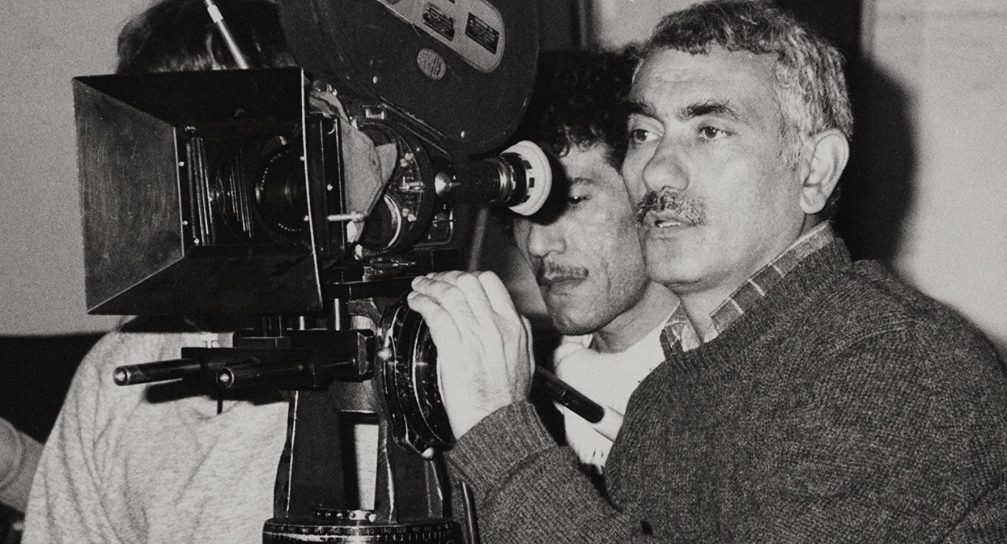
Dir.: Hüseyin Tabak; Documentary with Yilmaz Güney, Fatos Güney, Elif Güney-Putün, Nebahat Cehre, Donat Keusch, Serif Goren, Costa Gavras, Patrick Boussier, Canan Gerede; Germany/Austria 2017, 122 min.
German born director Hüseyin Tabak (Deine Schönheit ist nichts wert) treads a careful line in this frank portrait of the Kurdish film director and political activist Yilmaz Güney (1937-1984) – a man with personal flaws but undeniable talent.
Yilmaz Güney was born in Andana, Anatolia in Southern Turkey to Kurdish parents – and heritage he was proud of for he rest of his life. After studying economics at Istanbul University, he became a screen actor in as many as 111 features and later gained the sobriquet ‘The ugly King’, after playing a gangster in the 1967 film of the same name. In 1960 and 1962 he was imprisoned for political reasons, and directed his first feature in 1965. After establishing his own production company with early 1970s social realist fare such as Umut (Hope), Agit (Elegy), Aci (Pain) and Hopeless – far removed from the entertainment films he had starred in beforehand. In 1972 he was arrested again for harbouring radical students, and was later imprisoned during pre-production of Zavallilar (The Miserable) in 1975. The timing of his arrest was crucial, since he was completing his 1974 film Endise (Worry), which was finished by his assistant Serif Gören, who would become a regular stand in during his prision stays, particularly during Güney’s long internment between 1974 and 1981. The filmaker was released under an amnesty in 1974, but re-arrested in the same year for shooting dead a district attorney near his birthplace of Adana. In the trial, it became clear, that the incident was part of a drunken brawl, and Güney had absolute no intention of killing his victim. But he state judiciary changed trial judges three times, and finally Güney was convicted for murder and sentenced to 19 years in prison. In his cell, he wrote his masterpieces directed by Zeki Okten: Suru (The Herd), 1978 and Dusman (The Enemy) 1979. A year later, the new military Junta declared all of Güney’s films banned, and a year later the director escaped from prison, helped by the American director Canan Gerede, and his Austrian producer Donat Keusch, who bribed prison wards and border soldiers with “whores and money”. Güney was being granted asylum in France by President Mitterand, after Germany and other West European countries had refused to grant him this status. In the following year, at the Cannes Film Festival, Güney’s Yol (directed again by Goren) won the Golden Palme, sharing it with Costa-Gavras’ Missing, the latter having fled from the Greek Junta to France. A year before his death of cancer in 1984, Güney directed his last feature, Duvar (The Wall) in France.
Güney’s first marriage was to the Turkish actress Nebahat Cehre, who had co-starred in many of his films. The marriage only lasted from 1966 to 1968, after which Cehre asked for a divorce, after her husband had tried to run her over with his car after an argument, breaking her collarbone in the process. Interviewed, she stated, that her ex told her in hospital “that I could be sure, that he did not wanted to hit me with the car”. Güney had a daughter from a former relationship, Elif Güney Putun, whom he hardly ever saw. But Tabak quotes from one of Güney’s film’s, were a child is called Elif, and her (film) fate bears resemblance to the one of his neglected daughter. When shooting The Wall in 1983, French filmmaker Patrick Blossier was allowed to shoot a documentary of the making of the feature, and was surprised, how much freedom Güney gave him. The excerpts we see are rather frightening: he making a big scene with the translator, after the latter misheard Güney’s directives. Worse, the latter shouts and raves at an actor, a young boy, who tried in vain to cry. After the day’s shooting, Güney tried to make up for his brutal behavior, telling the boy, how much he loved him.
Tabak, who discussed the structure of the film with fellow director Michael Haneke, tries his best to give the professional the personal Egos of Güney enough space, sometimes one feels his embarrassment at this ‘hero’s’ vicious machismo. But Tabak delivers a very satisfying statement on filmmaking, history and the male psyche. AS
ON RELEASE DURING EAST END FILM FESTIVAL 2018 | 15 April 2018